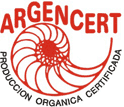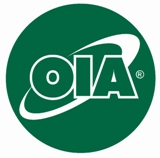IFOAM Press Release
Bonn, Germany, June 19th 2006World Day to Combat Desertification: IFOAM Encourages the Adoption of Organic Agriculture
Bonn, Germany, June 19th 2006 -Ten years after the ratification of the United Nations Convention to Combat Desertification (UNCCD), the World Day to Combat? Desertification - June 17 - has again come and gone without any significant media coverage. Recognizing that seventy percent of the world's drylands are currently degraded and in the process of desertification, the situation is indeed dire. IFOAM encourages farmers worldwide to adopt organic agriculture methods, governments to integrate investment and support for organic agriculture in their UNCCD National Action Programs (NAPs), and denounces the abuse of water by corporations in industrial agricultural systems.
Desertification, or the degradation of drylands, is caused by over cultivation, overgrazing and deforestation, and results in soil exhaustion and soil erosion. It diminishes soil productivity, reduces food production and deprives land of its vegetative cover. It also has negative affects on areas not directly involved, because desertification can also lead to floods, soil salinization, deterioration of water quality, and silting of rivers, streams and reservoirs.
Organically managed soils are more resilient both to water stress and nutrient loss, and thus have the potential to counter soil degradation. Organic farmers feed their fields with organic matter that enhances degraded soils. Micro-organisms help to create a stable soil structure, and water and nutrient retention capacity increases due to a high level of organic matter and permanent soil cover, allowing a substantial reduction in the amount of water needed for irrigation.
In organic agriculture, permanent soil cover is an intrinsic part the system, which helps return fertility to degraded lands.? Locally adapted leguminous crops quickly restore degraded soils, suppress weeds, fix nitrogen and prevent erosion, while allowing primary cash crops to flourish.
Crucially, sound soil management practices can prevent land degradation and further agricultural encroachment in fragile areas. In countries suffering desertification, the promotion of organic agriculture through education and training is a key to bringing degraded land back into production.
National Action Programs (NAP) are one of the key instruments in the implementation of the UNCCD.? Governments need to recognize and specifically mention the benefits of Organic Agriculture in these action programs and provide tangible support to the development of Organic Agriculture as the most important way to combat desertification in an agricultural context. Governments and the UNCCD alike need to comprehend that Organic Agriculture is a systems-based approach that increases the ecological, social and economic sustainability of the communities that rely upon this system. IFOAM supports the call by the International Federation of Agricultural Producers (IFAP) for increased investment in dryland areas, and in particular investments in family farming and local food security and the development of people centered and rights-based approaches to rural development.
IFOAM would also like to take this opportunity to denounce the use of water to feed industrial agricultural systems all over the world, which is a major contributing factor to desertification. One particularly disturbing example is an industrial? pineapple plantation and factory in Kenya, which besides being noted for its use of dangerous pesticides, pilfers vast quantities of water from the regional water system to create the tropical environment necessary to grow 300,000 tons of canned pineapple each year destined exclusively for export, resulting in environmental devastation and desertification for communities downstream.? This is not an isolated situation, as irrigation for crop production claims 65 percent of all water used by humans.
One tangible action that individuals can take to stop desertification is to purchase organic pineapple and raise awareness among peers about the negative impacts of buying conventional canned pineapple.
IFOAM is the international umbrella organization of organic agriculture movements worldwide.
IFOAM's mission is leading, uniting and assisting the organic movement in it's full diversity. Our goal is the worldwide adoption of ecologically, socially and economically sound systems that are based upon the Principles of Organic Agriculture.
IFOAM Press Release, Responsible: Angela B. Caudle, Contact: Neil Sorensen
Head Office Contact
Charles-de-Gaulle-Str. 5
53113 Bonn, Germany
Tel: +49-228-92650-10
Fax: +49-228-92650-99
Email: headoffice@ifoam.org
http://www.ifoam.org
















